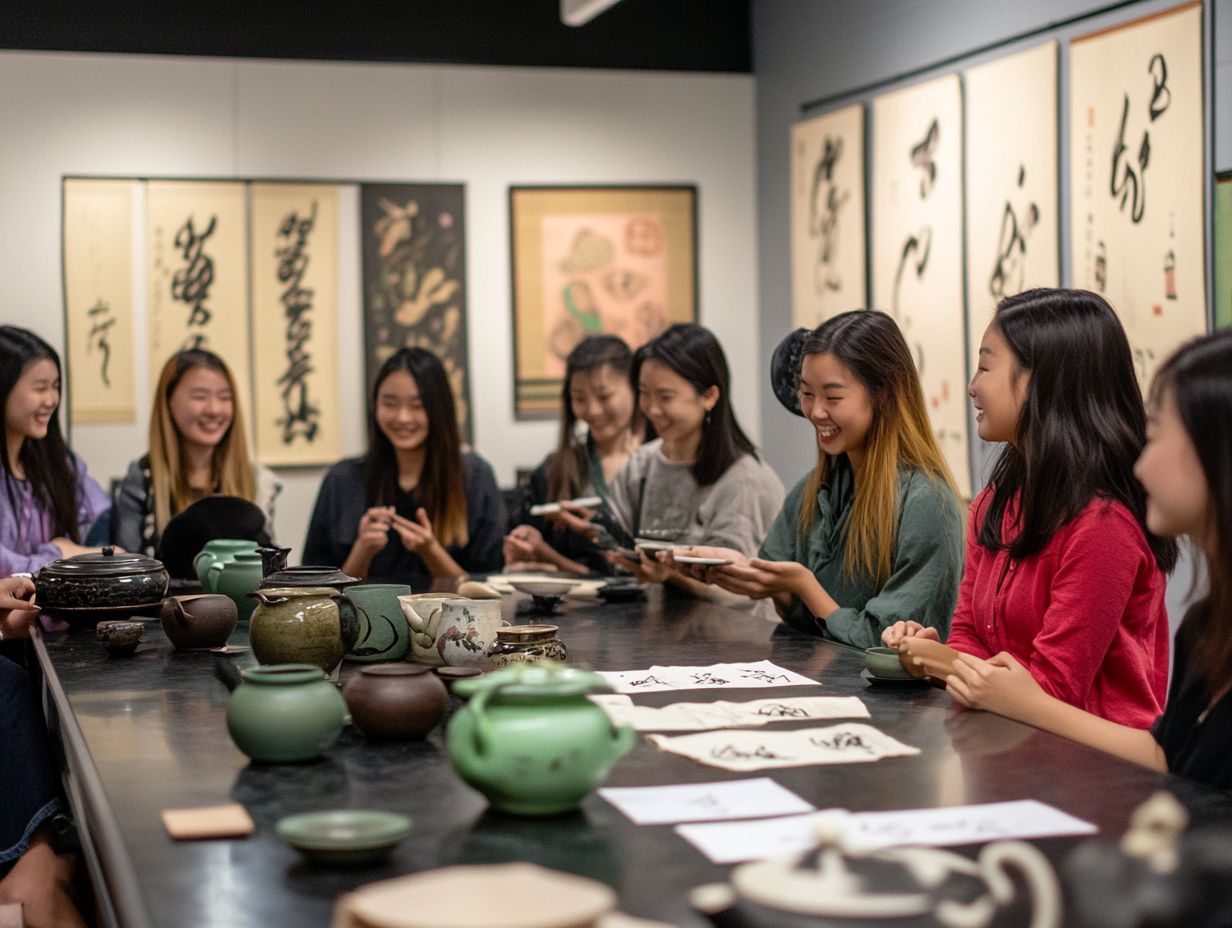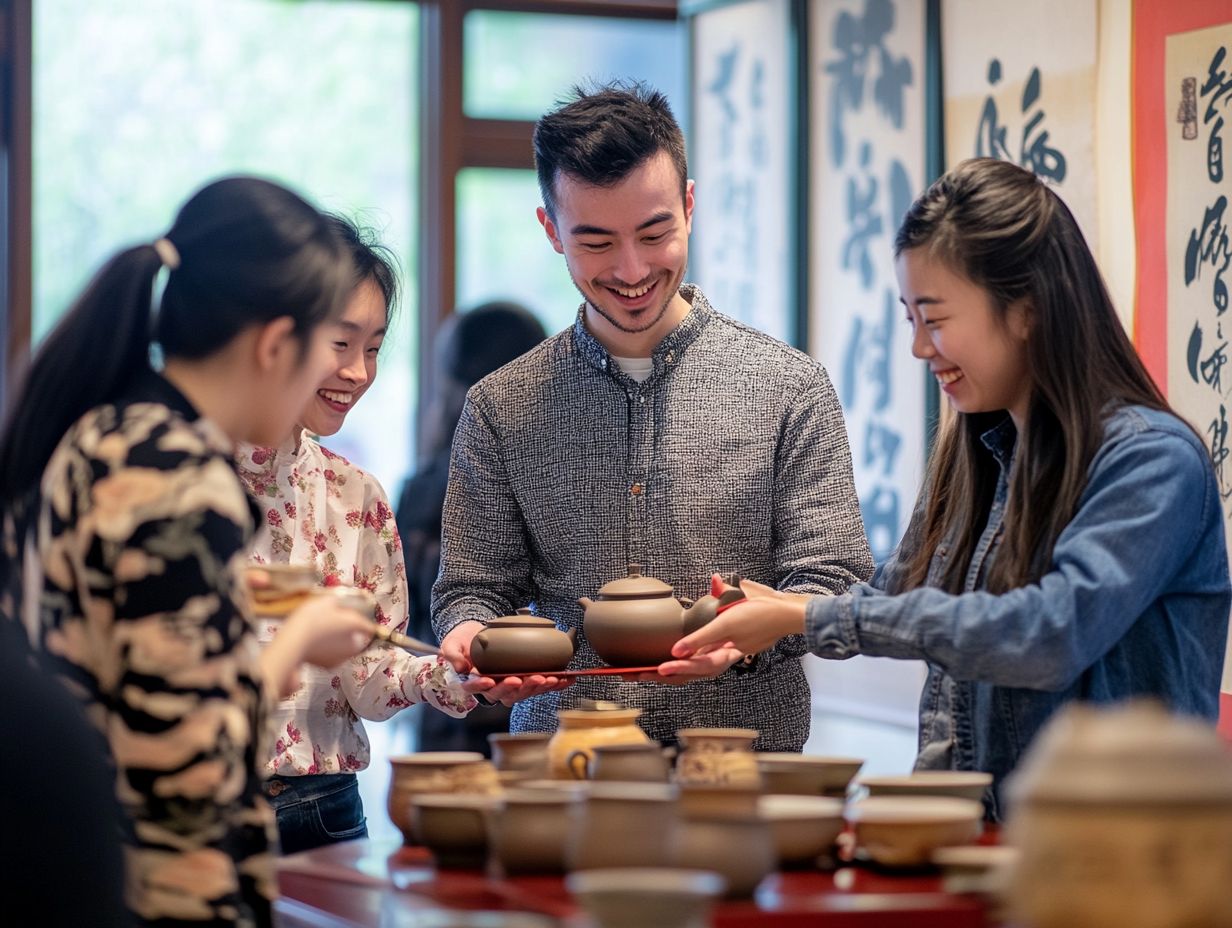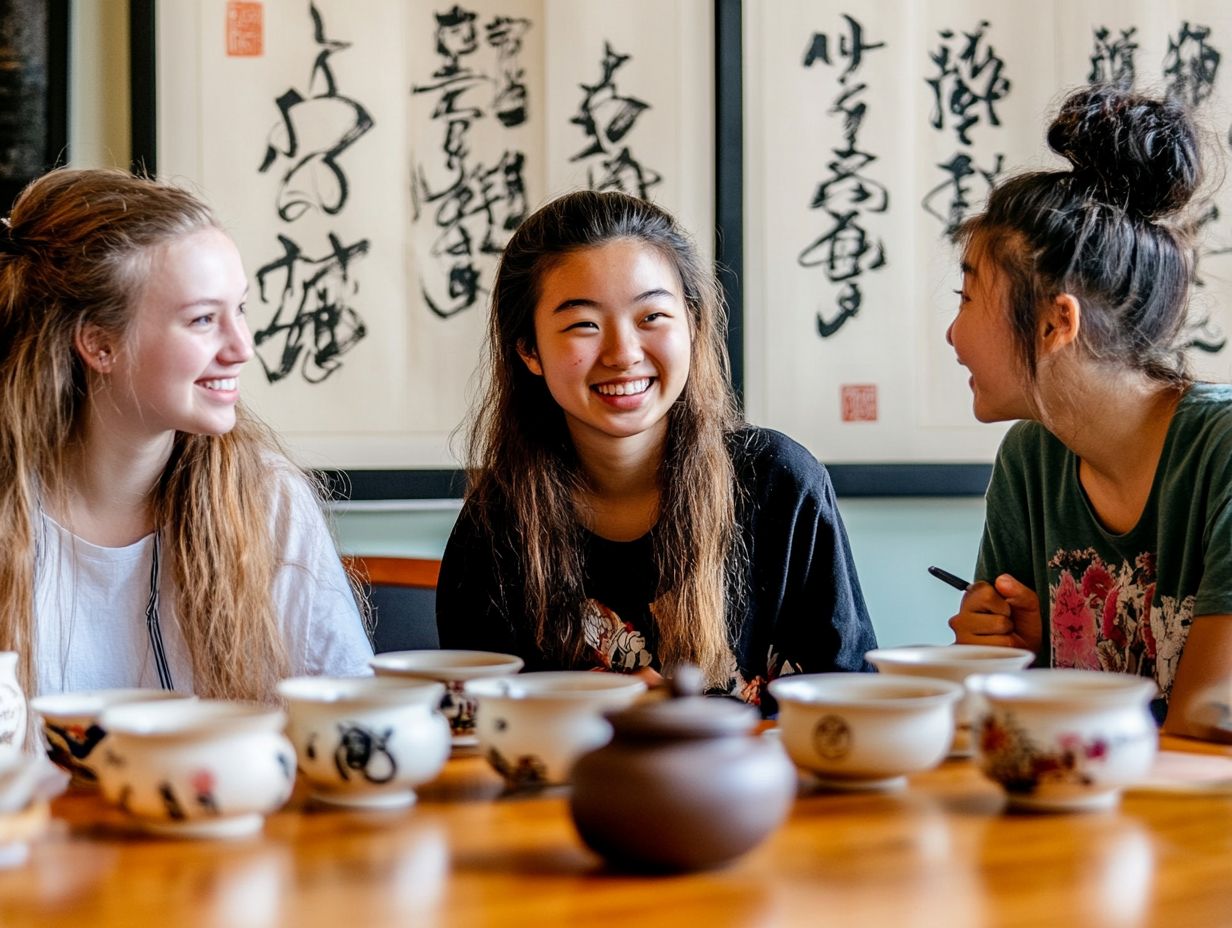Cultural Differences to Consider When Studying in China
Studying in China presents an extraordinary fusion of academic rigor and vibrant cultural experiences. However, navigating this dynamic landscape demands an appreciation for its intricate cultural nuances.
You ll discover that classroom etiquette, social interactions, food customs, and living arrangements all reflect a society that deeply values tradition and respect.
This article delves into the essential cultural differences you may encounter, while also providing strategies to address challenges and embrace opportunities for meaningful exchange and personal growth.
Contents
- Key Takeaways:
- Understanding Cultural Differences in China
- Academic and Social Expectations
- Adjusting to Chinese Lifestyle
- Challenges and Opportunities for International Students
- Frequently Asked Questions
- What are some cultural differences to consider when studying in China?
- How should I approach communication with my Chinese peers?
- What are some customs or etiquette to be aware of in China?
- How can I show respect for Chinese culture while studying there?
- Are there any specific dining customs I should be aware of in China?
- What are some ways to adapt and adjust to the cultural differences in China?
Key Takeaways:
Reflect on these key points as you prepare for your journey:

- Be aware of the differences in classroom etiquette in China, such as the importance of respecting the teacher and avoiding confrontational behavior.
- Adjusting to the Chinese lifestyle may involve adapting to different food and dining customs, as well as navigating different housing and living arrangements.
- International students may face challenges with culture shock, but can also take advantage of opportunities for cultural exchange and learning during their time in China.
Understanding Cultural Differences in China
Understanding cultural differences in China is crucial if you aim to engage meaningfully with its rich culture and society.
This involves appreciating concepts like collectivism, which values group needs over individual needs, and recognizing the distinct communication styles that set it apart from Western norms.
As an international student, you must navigate cultural expectations and norms that can significantly influence both your educational journey and social interactions while studying abroad.
Overview of Chinese Culture
Chinese culture boasts a rich tapestry of history and traditions that emphasize respect for elders and a strong sense of collectivism, profoundly shaping social interactions and norms around you.
This respect comes to life during celebrations like the Chinese New Year, when families gather to honor their ancestors through time-honored rituals. Collectivism serves as a cornerstone of community relationships, fostering a deep sense of belonging and shared responsibility among individuals.
In China, social norms often prioritize family units, meaning decisions tend to reflect the collective needs and desires rather than those of just one person.
Initiatives such as community elder care programs highlight this cultural appreciation for social harmony, ensuring that older generations receive the support they need and remain integrated into the community.
Academic and Social Expectations
Navigating academic and social expectations in China demands a clear understanding of the social norms and classroom experiences that define the educational journey for both Chinese students and international students.
You need to understand the dynamics at play, as these elements significantly shape your overall experience in this unique educational landscape.
Differences in Classroom Etiquette

Classroom etiquette in China presents a striking contrast to Western approaches, marked by a profound respect for authority and an emphasis on group harmony over individual expression.
In Chinese classrooms, students are expected to remain silent while the teacher imparts knowledge. This reflects a cultural focus on listening and absorbing information rather than interrupting or posing questions.
In stark contrast, Western classrooms typically foster an interactive atmosphere where open dialogue and student participation are not just welcomed but encouraged.
You might feel at ease sharing your ideas freely in an international setting, but adapting to an environment where raising a hand to speak is the norm can be a challenge. This difference in communication styles can lead to misunderstandings.
Chinese students prioritize maintaining a respectful atmosphere, while you and your peers may mistakenly interpret silence as a lack of engagement or interest in the topic at hand.
Start preparing for your adventure in China today!
Navigating social interactions in China requires you to understand the intricacies of friendship dynamics, communication styles, and the cultural differences that shape how relationships develop.
In this captivating social landscape, group harmony takes precedence over individual expression. This can be challenging for newcomers. You’ll find that respect for elders is essential, with younger individuals expected to show deference, reinforcing family and societal values.
Friendships are typically forged through shared experiences and mutual respect rather than overt displays of emotion. If you’re an international student looking to adapt, embracing local customs like participating in group meals, recognizing the importance of non-verbal cues, and practicing patience with relationship-building can significantly enhance your social integration.
Engaging sincerely and showing interest in local traditions will help you weave genuine bonds into this rich cultural tapestry.
Adjusting to Chinese Lifestyle
Adapting to the Chinese lifestyle calls for genuine openness to changes in culture, especially regarding food customs and housing arrangements that differ from Western norms.
Embracing these changes will enrich your experience and allow for a deeper connection with the vibrant culture around you.
Food and Dining Customs
Food and dining customs in China reveal a deep appreciation for communal eating, where etiquette highlights the significance of respect and harmony among diners.
These shared meals go beyond mere nourishment; they embody unity and the vital importance of relationships. As you enjoy these experiences, you ll find that shared dishes encourage interaction and invite everyone to help themselves from the center of the table. This fosters a genuine sense of togetherness and mutual respect.
It s customary for individuals to serve others first, a practice rooted in consideration and generosity. When you host a meal, it offers a chance to showcase your cooking abilities and hospitality, reflecting your social standing and ability to connect with your guests.
These traditions show how food transcends simple sustenance, serving as a bridge for social bonding and community cohesion.
Housing and Living Arrangements

Housing and living arrangements in China often embrace the thrill of communal living, presenting both challenges and unique opportunities for you as an international student eager to delve into the local culture.
Choosing to stay in dormitories can offer a sense of community, surrounding you with fellow students who share experiences and forge bonds that could last a lifetime.
On the flip side, opting for shared apartments might provide a more private sanctuary, allowing you to carve out personal space while still fostering interactions with roommates from various backgrounds.
These diverse housing options not only simplify your daily living but also act as gateways for cultural exchange. By navigating your living situation, you can enhance your social network, develop crucial life skills, and embrace experiences that will greatly enrich your academic journey.
Challenges and Opportunities for International Students
International students in China encounter various challenges, from cultural shock to language barriers. However, they also discover a wealth of opportunities for cultural exchange and personal growth that enhance their experience.
Embrace these experiences and make the most of your time in China!
Cultural Shock and Coping Strategies
Cultural shock refers to the feeling of confusion or anxiety when experiencing a new culture, and it is common for international students in China. This experience often comes with social anxiety. However, by employing effective coping strategies, you can help your personal growth and adaptation.
This transitional phase may present itself through feelings of confusion, frustration, or isolation as you navigate the complexities of your new environment. You might encounter unfamiliar customs, language barriers, and different social norms. All of these can amplify feelings of alienation.
To cope effectively, consider:
- Stay connected with family and friends back home.
- Dive into local community events!
- Seek support from fellow international students.
These strategies can provide crucial grounding as you adjust.
Overcoming these initial hurdles not only builds your strength but also leads to a deeper understanding of diverse perspectives. This journey can significantly enrich your overall educational experience and personal development.
Opportunities for Cultural Exchange and Learning
Opportunities for cultural exchange and learning are abundant for international students in China. They range from academic collaborations to community-building initiatives and global business insights.
These avenues broaden your academic horizons and provide enriching experiences that can profoundly transform your understanding of the world. Participate in internships to gain hands-on experience across diverse fields while immersing yourself in local business practices.
Language exchange programs foster meaningful interactions, enabling you to refine your language skills and build friendships that span cultures. Community service activities encourage you to actively contribute to local societies, fostering empathy and a sense of belonging.
Collectively, these experiences cultivate a deeper appreciation for cultural nuances and help establish lasting connections with individuals from varied backgrounds.
Frequently Asked Questions

What are some cultural differences to consider when studying in China?
One major difference is the concept of face in Chinese culture. Maintaining face preserving social image and reputation is extremely important. This can impact interactions and communication styles.
How should I approach communication with my Chinese peers?
In Chinese culture, indirect communication is often preferred over direct communication. Show respect by using proper titles and formal language. Be aware of your body language and tone when speaking to your Chinese peers.
What are some customs or etiquette to be aware of in China?
Bowing is a common gesture of respect, especially when greeting someone or showing gratitude. Do not point with your finger; it s considered impolite. Instead, use an open hand or nod in the direction.
How can I show respect for Chinese culture while studying there?
Learn some basic Mandarin phrases and use them in your daily interactions. Participate in cultural activities and festivals, such as the Dragon Boat Festival or Chinese New Year. This shows your interest and respect for Chinese culture.
Are there any specific dining customs I should be aware of in China?
Yes, there are a few dining customs to keep in mind. It is polite to leave a bit of food on your plate as it shows that you are satisfied with the meal. It is common to use chopsticks when eating, and never stick them upright in a bowl of rice; this is a symbol of death.
What are some ways to adapt and adjust to the cultural differences in China?
Observe your Chinese peers; they can offer great insights! Having an open mind and being willing to learn and adapt to new customs and traditions will make your study experience in China more enjoyable.






